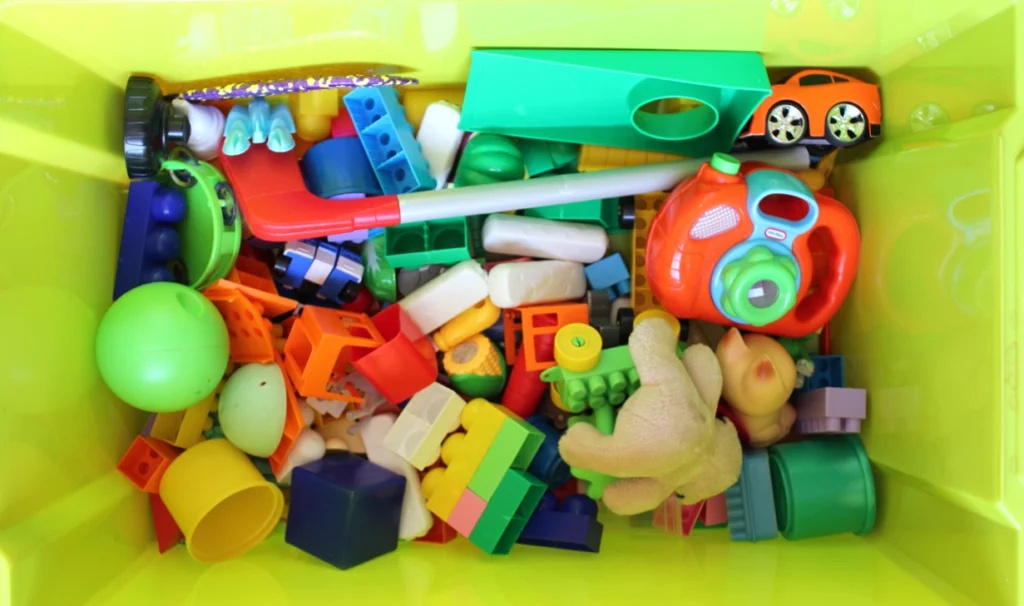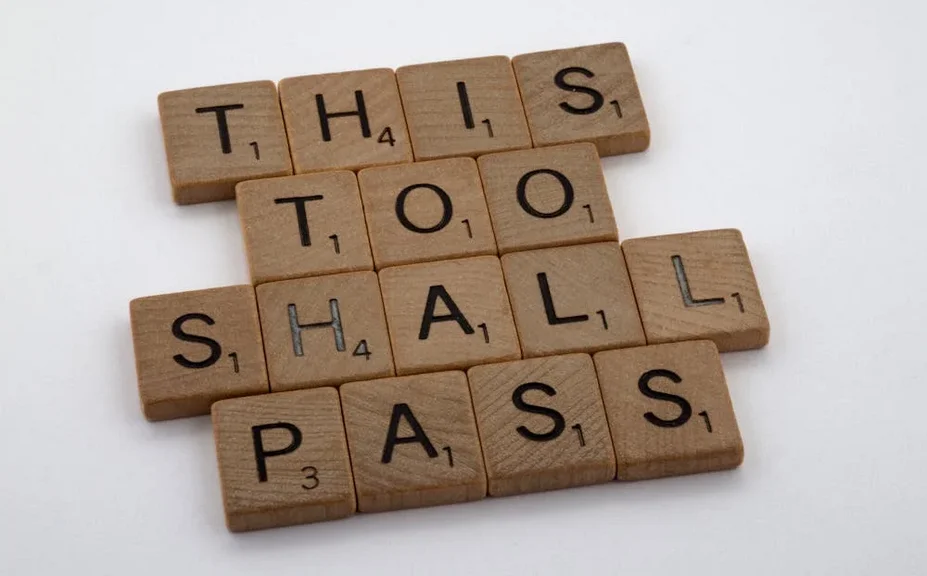The 1960s were a transformative era of revolution and change, but amid the chaos of a world in flux, it was often the small, everyday phrases from our parents that left the most lasting impressions. Those seemingly simple words of wisdom, casual observations, and gentle admonishments have echoed through the decades, shaping our perspectives and guiding our decisions long after bell-bottoms and tie-dye shirts went out of style. As we look back through the lens of nostalgia, it’s remarkable how these brief moments of parental guidance established the foundation for who we would become.
1. “Money doesn’t grow on trees.”

This practical reminder usually came after begging for the latest toy in the Sears catalog or during a shopping trip to Woolworth’s when we’d grab anything that caught our eye. Our parents, many of whom had lived through the Depression or wartime rationing, understood the value of a dollar in ways we couldn’t comprehend while surrounded by the prosperity of the postwar boom. Those four simple words instilled a sense of financial responsibility that shaped our spending habits for decades to come. Newton Federal also writes that teaching kids the value of money inherently teaches them other valuable lessons like the importance of hard work, commitment, and patience.
Years later, we found ourselves repeating this very phrase to our own children, realizing how deeply it had been ingrained in our financial consciousness. We learned to save for things we wanted, to consider purchases carefully, and to understand that resources were finite and had to be managed wisely. This lesson in frugality would prove especially valuable during the oil crises and economic challenges of the 1970s, when many of us were starting our own independent lives.
2. “Finish what you start.”

Whether it was a half-built model airplane, abandoned homework, or a partially weeded garden, this gentle parental nudge taught us the importance of seeing tasks through to completion. Our parents understood that the ability to persevere through challenges and boredom would serve us well in an increasingly competitive world. The simple phrase carried profound implications about work ethic, reliability, and the satisfaction that comes from completing what you’ve committed to. 123 Nourish Me has several reasons why teaching children to finish what they start is one of the most important lessons they’ll learn.
This lesson would prove invaluable throughout our education, careers, and relationships, fostering a sense of dependability that others would come to respect in us. We learned that starting something new was exciting, but the real character development happened during the often tedious middle stages, when enthusiasm waned and completion seemed distant. This commitment to finishing what we started would become a cornerstone of our generation’s professional reputation, as companies valued employees who could be counted on to deliver results.
3. “Look it up.”

Long before Google, when we peppered our parents with questions about why the sky was blue or how far away the moon was, they often directed us to the family encyclopedia or dictionary. This simple redirection taught us to value research and self-education rather than relying solely on others for answers. The modest home library—perhaps a set of World Book encyclopedias purchased one volume at a time from the grocery store—became our earliest search engine, training us to seek knowledge independently. Unplugged Cabins lists some popular sources of information before search engines took over.
We learned to navigate indexes, cross-references, and bibliographies, developing research skills that would serve us well throughout our academic careers and professional lives. This encouragement of intellectual curiosity instilled a lifelong love of learning that extended far beyond formal education. Many of us still find ourselves automatically reaching for reference materials when faced with an unfamiliar topic, carrying forward this habit of self-directed learning that our parents so wisely encouraged.
4. “If your friends jumped off a bridge, would you do it too?”

No phrase more perfectly captured our parents’ concern about peer pressure than this classic question, which inevitably followed our pleas to do something because “everyone else was doing it.” In an era of rapidly changing social norms, our parents were trying to instill a sense of independent thinking that would help us navigate the complex social pressures of adolescence. Though we rolled our eyes at the time, this question prompted us to examine our motivations and make decisions based on our own judgment rather than following the crowd.
The lesson became especially relevant as we navigated the social upheavals of the late ’60s, when many of our generation were faced with genuine moral dilemmas about conformity versus personal conviction. Whether deciding about recreational substances, political activism, or career paths that diverged from tradition, this simple question helped us develop a moral compass that wasn’t solely determined by what others were doing. We learned to ask ourselves what we truly believed was right, rather than simply going along with the prevailing trends.
5. “Eat your vegetables, children are starving elsewhere.”

This dinnertime reminder to clean our plates came with a side of global awareness that many of us found confusing at first—how exactly would our finished Brussels sprouts help hungry children in faraway places? Behind this seemingly illogical connection was our parents’ attempt to instill both gratitude for our abundance and awareness of others’ hardships. The phrase was a simplified introduction to concepts of privilege, waste, and global inequality that would become more relevant as we grew older.
As adults, we came to understand the deeper meaning behind what had seemed like mealtime manipulation. We learned to recognize our relative fortune and to consider the broader implications of wastefulness in a world of limited resources. This early consciousness-raising shaped our generation’s increased awareness of global issues and contributed to the growing environmental movement that many of us would later embrace. What seemed like a simple guilt trip over dinner became a foundation for understanding our place in a larger world with unequal distribution of resources.
6. “A place for everything and everything in its place.”

As we scattered toys across the living room floor or left jackets draped over chairs, this organizing principle was repeated so often it became deeply embedded in our understanding of domestic order. Our mothers, who generally shouldered the burden of household management, were teaching us systems thinking before it became a business buzzword. The principle applied not just to physical objects but also to time management and personal responsibilities.
This early training in organization created habits that would serve us well throughout our lives, from keeping track of school assignments to managing complex work projects decades later. The satisfaction of an orderly environment—knowing where to find things when needed and the clarity of thought that comes with reduced clutter—became an internalized value for many of us. We learned that maintenance requires less effort than damage control, a lesson that would apply to everything from household chores to financial planning to relationship management.
7. “If you can’t say something nice, don’t say anything at all.”

This gentle reminder to mind our tongues wasn’t just about surface politeness but reflected a deeper emphasis on kindness and consideration. Our parents, navigating the rapidly changing social landscape of the ’60s, recognized that words could wound as deeply as physical blows. The phrase encouraged us to consider the impact of our speech on others, to practice empathy, and to choose words with care.
As we matured, this simple guideline evolved into a more nuanced understanding of communication and its consequences. We learned to provide constructive criticism when necessary, to stand up for ourselves and others, and to recognize when silence might be complicity rather than kindness. The essence of the lesson—considering how our words might affect others—remained valuable throughout our lives, helping us navigate professional relationships, friendships, and family dynamics with greater awareness and sensitivity.
8. “Life isn’t fair.”

This stark reality check usually followed complaints about perceived injustices: a larger piece of cake for a sibling, a neighbor’s new bicycle, or an inexplicable parental decision. Rather than sympathizing with our outrage, our parents used these moments to prepare us for the unavoidable disappointments life would bring. The blunt acknowledgment that fairness wasn’t guaranteed helped us develop resilience and perspective when facing setbacks.
While it seemed harsh at the time, this lesson prepared us for a world that wouldn’t always reward merit or effort in expected ways. We learned to focus on what we could control rather than dwelling on perceived injustices, and to find satisfaction in our own accomplishments rather than comparing ourselves to others. This realistic outlook would prove valuable during the economic uncertainties of the 1970s and beyond, as our generation faced challenges that required adaptability and perseverance rather than expectations of perfect fairness.
9. “You’ll understand when you’re older.”

When we asked difficult questions about adult concerns or when we couldn’t comprehend why certain rules existed, this cryptic response often left us frustrated yet intrigued. Our parents, navigating complex issues from Cold War tensions to social upheaval, sometimes struggled to explain complicated concepts at a child’s level of understanding. The phrase acknowledged both our curiosity and the limitations of our developing perspectives.
Looking back, we recognize that our parents were right—many things did become clearer with age and experience. Complex ethical questions, the nuances of human relationships, and the reasons behind certain traditions often did require the perspective that only time could provide. This recognition of the value of lived experience shaped our respect for wisdom over mere information, a distinction that would become increasingly important as our society moved toward the information age with its abundance of data but sometimes shortage of wisdom.
10. “Waste not, want not.”

This frugal philosophy reflected our parents’ experiences during leaner times, when conservation wasn’t just environmentally sound but economically necessary. We watched as they repurposed glass jars, carefully folded gift wrap for reuse, and transformed leftovers into new meals with creative flourishes. Their ingenuity in stretching resources taught us to see potential where others might see trash.
These early lessons in conservation created habits that would later align with environmental awareness, though our parents’ motivation was primarily practical rather than ecological. We learned to consider the full lifecycle of items, to repair rather than replace when possible, and to find satisfaction in resourcefulness rather than constant consumption. This mindset would prove valuable during the resource shortages of the 1970s and would later inform our generation’s growing environmental consciousness as we became aware of the planetary impacts of waste.
11. “Because I said so.”

This authoritative shutdown of further questioning represented the parenting style of an era when children weren’t generally included in decision-making processes. While it sometimes felt arbitrary, this phrase reflected our parents’ belief that respect for authority was non-negotiable and that children needed clear boundaries rather than elaborate explanations. The assertion of parental authority created a structure that, despite occasional frustration, provided security and clear expectations.
As we grew into parents ourselves, many of us sought more collaborative approaches with our own children, wanting to explain our reasoning rather than simply assert our authority. Yet the underlying principle—that sometimes boundaries need to be respected even when we don’t fully understand the reasoning—remained valuable in many contexts. We learned that while questioning authority could be appropriate and necessary, functioning in society also required accepting certain limitations and respecting established structures.
12. “This too shall pass.”

During childhood disappointments—whether a scraped knee, a failed test, or a friendship drama—this philosophical perspective offered both comfort and perspective. Our parents, having weathered their own storms, understood the temporary nature of most crises and tried to impart this wisdom when we felt overwhelmed by what seemed like world-ending catastrophes. The phrase acknowledged our pain while gently suggesting that it wouldn’t last forever.
This lesson in impermanence would prove valuable throughout our lives, helping us maintain perspective during difficulties and appreciate joyful moments knowing they too were fleeting. We developed resilience by understanding that both pain and pleasure were temporary states rather than permanent conditions. This balanced perspective helped many of us navigate the inevitable ups and downs of adult life with greater equanimity, recognizing that circumstances constantly change and adaptability is essential to emotional well-being.
13. “Always wear clean underwear in case you’re in an accident.”

This peculiar bit of parental wisdom—often delivered with complete seriousness—revealed our parents’ concern with appearances and social judgment even in the most extreme circumstances. Behind the somewhat humorous image was a deeper message about preparation and presenting ourselves respectably regardless of the situation. The advice wasn’t really about underwear but about maintaining dignity and standards even when no one was looking.
The underlying principle—being prepared for unexpected events and maintaining personal standards regardless of circumstances—would serve us well throughout our lives. We learned to consider potential outcomes of our actions and to maintain certain standards not for external approval but as a matter of personal integrity. While we might laugh about the specific advice now, the principle of being prepared for life’s unexpected turns remained valuable guidance that many of us have passed on to our own children in updated forms.
The impact of these seemingly simple phrases extends far beyond their original context, creating a framework for how we would approach work, relationships, and life’s challenges. Many of us find ourselves automatically repeating these same words to younger generations, sometimes catching ourselves mid-sentence with the startling realization that we’ve become our parents. But perhaps that continuity is something to celebrate—a connection across generations through shared wisdom that remains relevant despite the dramatic changes in technology, culture, and society since those formative years of the 1960s.


